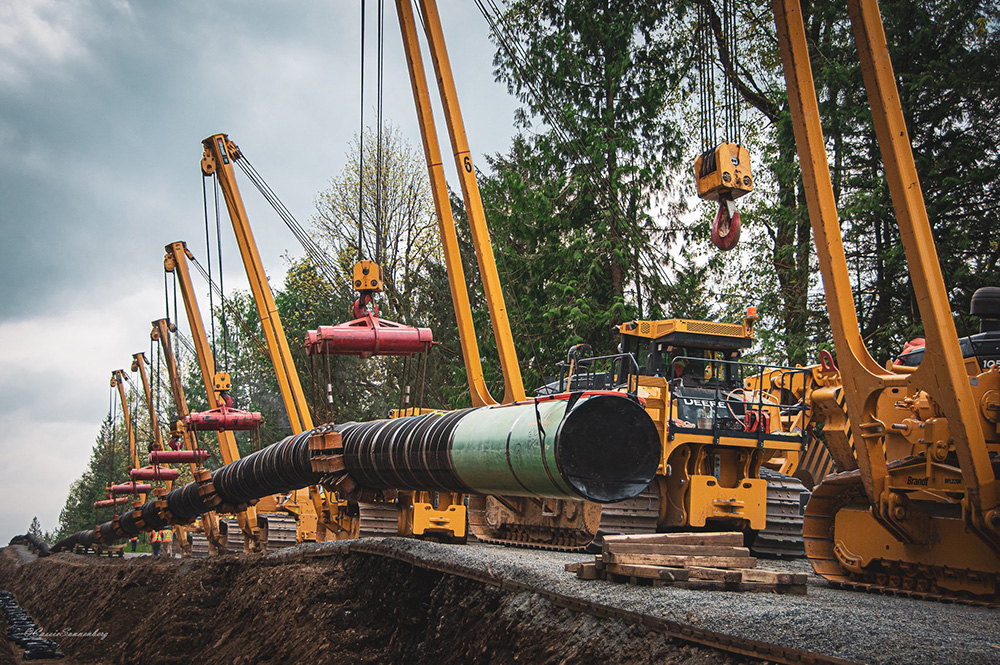If federal parties are serious about taking on climate change, they need to stop giving money to the oil and gas industry, according to two climate experts.
This year two global authorities, the International Energy Agency and the Intergovernmental Panel on Climate Change, released landmark reports saying the world needs to stop all new fossil fuel developments by the end of this year, and immediately start phasing out the use of all oil, gas and coal.
For Canada, that means ending its annual $18-billion payments to the oil and gas industry through subsidies and supports, says Julia Levin, senior climate and energy program manager with Environmental Defence.
It also means radically reducing the amount of energy we consume, which includes overhauling our economy and retrofitting our homes, says David Hughes, an earth scientist with the Canadian Centre for Policy Alternatives with more than four decades of experience studying energy.
“After the IEA report, we know there can be no new spending on oil, gas or coal,” Levin says. “We need to see the federal government commit to eliminating all subsidies and supports, and to eliminate all public financing through its Crown corporations, pension funds and the Bank of Canada.”
Environmental Defence crunched government spending in an April report and found there’s likely more than $18 billion a year funnelled into the oil and gas sector because a lot of the spending happens through Crown corporations, which are less transparent in spending reports. It singled out Export Development Canada as a major source of financial support for the sector.
In 2018, the IPCC said the world had to band together to try and keep global temperatures from rising more than 1.5 C to avoid catastrophic impacts.
The 2021 IPCC report says the world is on track to blow past that limit, meaning this summer — with heat waves, wildfires, droughts and now hurricanes — could become the new normal. And it could even get worse.
“Any subsidies the government provides pushes us further away from the ability to limit global warming to 1.5 C,” Levin says. “When it comes to government dollars it’s a zero-sum game: every dollar spent on the oil and gas sector is a dollar that can’t go towards climate solutions.”
Levin says giving public money also sends mixed messages to the oil and gas sector.
On the one hand, there’s the price on carbon — which Levin points out only applies to a small portion of industrial emissions and not at all to emissions produced when exported fossil fuels are burned, which makes up 80 per cent of total emissions involved in oil and gas production.
On the other hand, there are fossil fuel subsidies, which can give $19 back per tonne of emissions, compared to the carbon taxes of $18 to $30 per tonne in different Canadian provinces, according to an Environmental Defence report.
Hughes says if Canada wants to hit its climate targets, it needs to cancel its pipeline projects, end all subsidies and supports for fossil fuels and start pouring money into building retrofits while we learn to live with a lot less electricity.
Canada’s economy will have to transition one way or another. Fossil fuels are a limited resource, so they’ll run out eventually — and Hughes says renewable energy won’t be able to fill the gap left by phasing out oil, gas and coal.
Hughes says he’s alarmed to hear governments and environmental organizations say renewable energy will solve the climate crisis. Renewables have their part to play, but we should call them “rebuildables” because of the maintenance, mining and replacement that they’ll need, he says.
“A really huge part of the solution is energy efficiency; we have to reduce consumption as much as possible,” Hughes says.
Here’s where the major political parties stand on subsidies, renewables and retrofits.
Conservative Party of Canada
The Conservative platform supports the oil and gas sector as a “critical part of our economy.”
In a recent report, Hughes notes oil and gas production increased by 47 per cent from 2000–2019 (the latest available data set year), but royalty payments collected in Canada fell by 45 per cent. The number of jobs in the sector also shrunk by 50,000 from peak 2014 levels of 226,460 — and are unlikely to go back up, he says. The oil and gas sector makes up one per cent of overall Canadian employment, he adds.
The Conservative platform suggests renewable energy could come from renewable natural gas and plastics, where “technology will allow us to turn plastics — even non-recyclable plastics — into valuable products like chemicals and renewable fuels.” Hughes says that doesn’t sound like a zero-carbon solution.
The platform pledges to make a national building code to support net-zero buildings and retrofits — but says the country lacks the skilled workers needed to retrofit all buildings in Canada by 2050.
Liberal Party of Canada
The Liberals say they would eliminate fossil fuel subsidies by 2023 and develop a plan to phase out public financing for the oil and gas sector, including from Crown corporations.
Hughes notes the Liberal government first committed to this when it signed the 2016 Paris Agreement, and has since spent $4.5 billion to buy the Trans Mountain pipeline and ensure its expansion goes ahead.
The Liberal platform says the party would invest $5 billion to “advance clean power generation, transmission and storage,” and $1 billion over five years to modernize the electrical grid.
That’s “chicken feed” compared to what’s needed, Hughes says.
The party says Canada’s power would be net-zero emissions by 2035 — which Hughes says is a possible target considering 80 per cent of the country’s power is already from hydro and nuclear — and that it’ll offer $5,000 and $40,000 grants to retrofit homes and buildings.
New Democratic Party
The NDP says it would immediately eliminate all fossil fuel subsidies. Its platform links to the Environmental Defence report that found Canada spent $18 billion in fossil fuel subsidies and support in 2020.
The party also says all Canadian electricity would be net zero by 2030 and 100-per-cent non-emitting by 2040. By 2025, all new buildings would be net-zero, and by 2050 Canada would have retrofitted all its buildings.
Hughes says this platform has some good ideas, but lacks details.
Green Party of Canada
The Green platform also says it would end all fossil fuel subsidies, wind down the fossil fuel industry to end the extraction of oil and gas — with oilsands production ending between 2030 and 2035 — and ban hydraulic fracturing, or fracking.
Hughes says more than 70 per cent of North American gas comes from fracking and that immediately banning fracking could send Canadian utility companies scrambling to provide heat and power during the winter.
The Greens say they would create a national renewable energy electricity grid and that 100 per cent of Canadian electricity would come from renewables by 2030.
Hughes says it would be possible to be emissions-free by 2030. But he notes nuclear power isn’t considered renewable, so he “highly doubts” the country could be powered by just renewables by then. The Greens have also pledged to ban new nuclear power projects.
The Greens also propose a “national green retrofit” of existing residential, commercial, institutional and industrial buildings and for all new buildings and renovations to meet net-zero standards by 2030. ![]()
Read more: Energy, Election 2021, Environment
















Tyee Commenting Guidelines
Comments that violate guidelines risk being deleted, and violations may result in a temporary or permanent user ban. Maintain the spirit of good conversation to stay in the discussion.
*Please note The Tyee is not a forum for spreading misinformation about COVID-19, denying its existence or minimizing its risk to public health.
Do:
Do not: